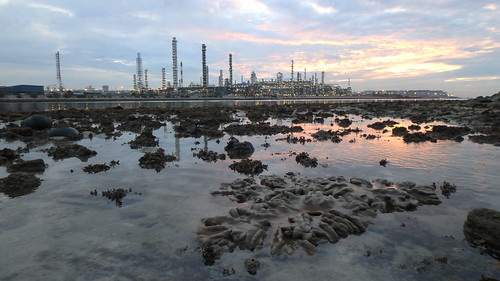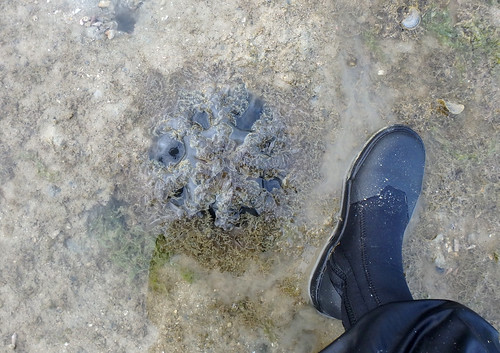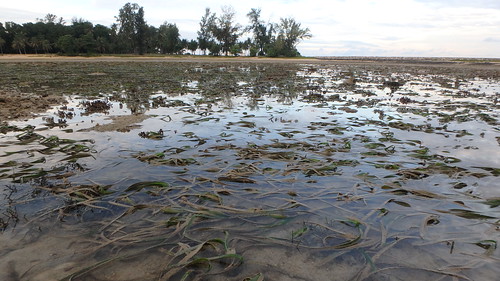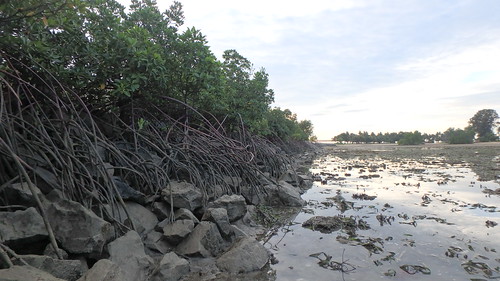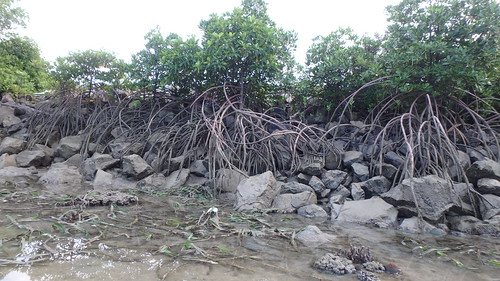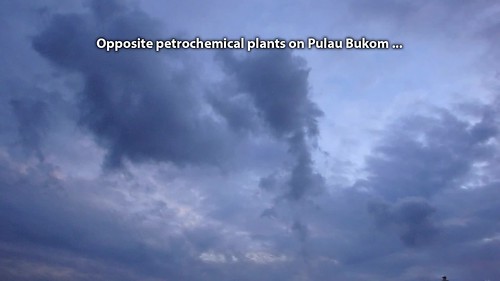A short survey of Pulau Hantu shows all seems well.
Although it lies just across the petrochemical plants on Pulau Bukom, there are living reefs, seagrasses and even mangroves on Pulau Hantu.
We were here with Nicholas Yap and his team of anemone hunters and other scientists. I tried to help by finding anemones. But could only find the common ones like: Giant carpet anemone (with anemonefish which were shy), Magnificent anemone, Haddon's carpet anemone and many Frilly anemones.
I only managed to survey the big lagoon facing Pulau Bukom and did not get to the reefy edge on the west. Nevertheless, it's good see corals were not bleaching. The most common corals were Merulinid corals (previously Favid). Most were alright though many had dead patches.
There were some large Pore corals, all alright though some had large dead portions.
I saw patches of Branching montipora coral, and several colonies of Cauliflower coral, most were alright although some had large dead patches.
There were many Anemone corals too. Some were rather flourescent, but I didn't see any that were bleaching.
I saw only a few small plate corals: Flowery disk coral, Ridged plate coral and Bracket mushroom coral. There were also a few small Brain corals that looked alright.
There were many small to medium sized colonies of leathery soft corals of various kinds. They were not bleaching.
I also saw several Asparagus flowery soft corals, and one Spiky flowery soft coral. All looked alright, although some were a little pale.
I saw a humungous Upsidedown jellyfish. At first I thought it was a sea anemone until I saw it weakly pulsating.
After sunrise, the lone long-tailed macaque on the island came towards me and appeared to forage. It then started to follow me as I made my way across the lagoon to our departure point. I managed to reach Samuel, and even standing next to him, the macaque came very close to us. It didn't show aggression or beg, and didn't make eye contact. Eventually, it left us.
While I did come across cropped Tape seagrasses, most of those I saw were long. There were sprinkles of Spoon seagrasses, most of them heavily covered in ephiphytes. This is similar to what I saw in Aug 2015 and Jan 2017.
I saw one male and one female flower. Most of the Tape seagrass had very long leaf blades (more than 50cm).
Mangroves have settled naturally on the artificial seawall around the lagoon. The trees are doing very well!
There are a wide variety of mangroves including some rarer species. They were all alright, with fresh green leaves and producing flowers and propagules.
Although the lagoon is artificial, it's nice to see seagrasses, corals and mangroves growing next to one another!
Sadly, there are many threats to the shores of Pulau Hantu. In Apr 2017, oil stains, sheen and blobs were seen around Pulau Hantu. In Jan 2017, a leak happened in a Shell unit on Pulau Bukom that was already shut down for maintenance. Two huge barges were seen 'parked' inside in Oct 2016, I checked for impact of these during our Jan 2017 survey at Pulau Hantu.
So it's good to see that the shores appear alright, for now.
Here's a video clip of some of the amazing marine life that can be found on Pulau Hantu. There was great visibility at the jetty and we saw corals and Juvenile batfishes. You can dive at Pulau Hantu! Just join the volunteers of the Hantu Bloggers.

